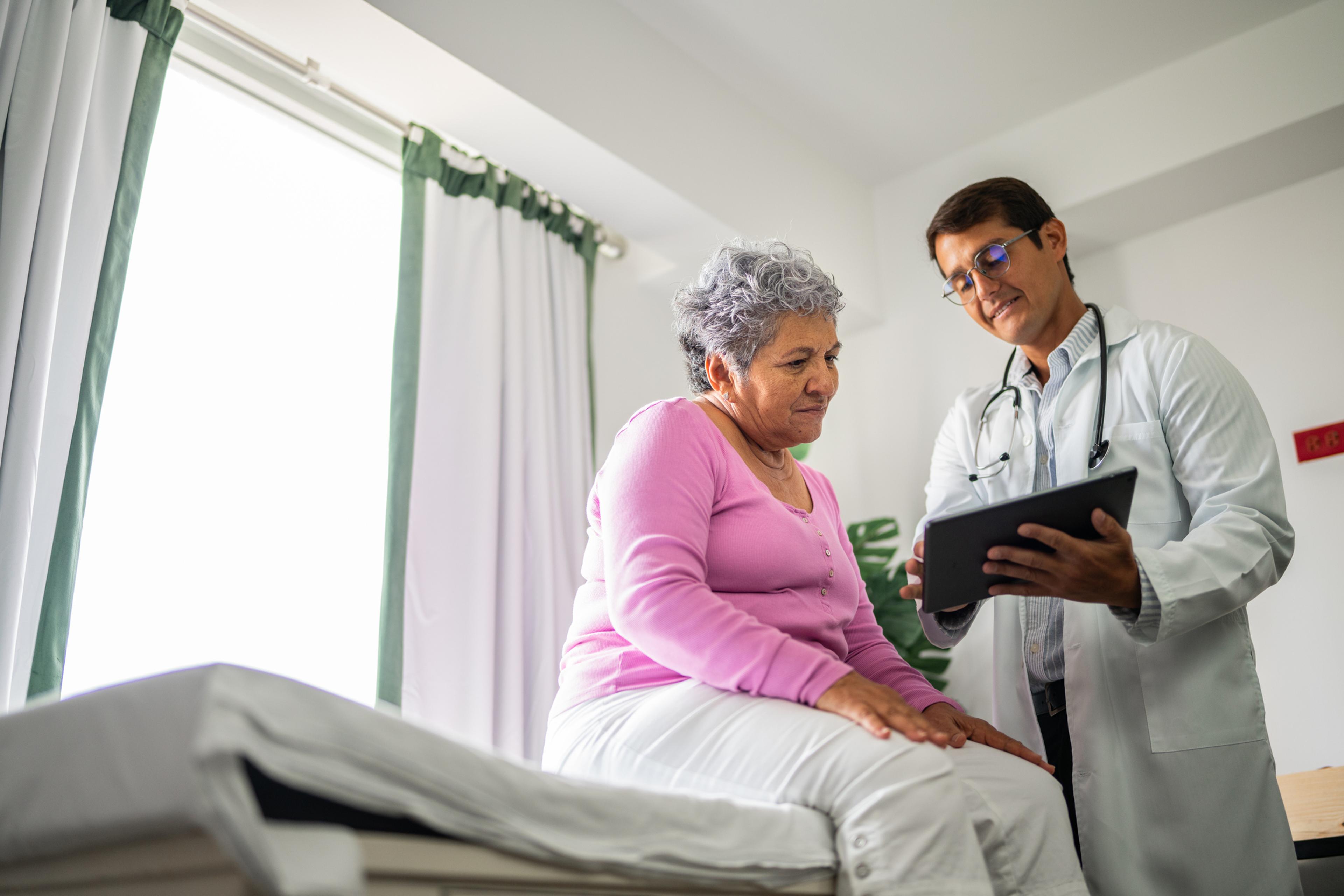
Bowel issues may sometimes cause us to suffer in silence. We may write off lingering abdominal discomfort as a stomachache. We may chalk up an unusual amount of time spent in the bathroom to something we ate that our body didn’t agree with. Plus, broaching the topic with a doctor can be embarrassing.
But ignoring symptoms that could be linked to irritable bowel syndrome (IBS) or inflammatory bowel disease (IBD)is a mistake. IBD affects about 1 in 20 Americans, according to the American College of Gastroenterology (ACG). Though women are disproportionately affected by the disorder, it affects men, too.
For clarification’s sake, both IBS and IBD are digestive conditions that impact the stomach and intestines. Both can be chronic conditions. IBS is a constellation of symptoms without damage to the lining of the GI tract, whereas IBD indicates there has been chronic inflammation of the GI tract. Both can have negative effects on a person’s lifestyle.
Suffering in silence only leads to a lower quality of life. With that in mind, here are five bowel-related issues you should never ignore, as illustrated by Blue Cross Blue Shield of Michigan Senior Medical Director & Associate CMO Dr. Namite Yende.
I would never ignore ongoing abdominal pain.
According to the ACG, abdominal pain the no. 1 symptom of IBS. Stomach pain and stomach bugs are common here and there, but persistent abdominal pain could be a sign of intestinal blockage, a colon infection or IBD. Call your doctor if your abdominal pain lasts for a week or longer or pain that doesn’t go away after passing gas or a bowel movement.
I would never ignore blood in the stool.
Blood in the stool can sometimes resolve on its own, but that doesn’t make it normal. All rectal bleeding or bloody stools should be investigated, as it could indicate the active inflammation of IBD. Bright red blood could mean something is amiss with the lower half of your colon, possibly indicating hemorrhoids or diverticular bleeding. Blood that is darker could signal an issue higher up in the colon that may be affecting the small intestine or stomach. Especially do not ignore blood in your stool if you have associated weight loss.
I would never ignore recurring bouts of stool urgency.
Urgent, explosive stool volume that affects your daily life can be a major red flag for IBD. When you’re repeatedly having to burst out of work or social settings to run to the bathroom – or if stool urgency is waking you up in the middle of the night – it’s time to call your primary care provider (PCP). Those suffering from IBS sometimes have a hypersensitive gut and feel a more pronounced urgency to go to the toilet than average people.
I would never ignore bloating or excessive gas.
A feeling or sense of bloating is a common symptom of IBS, while excessive gas can be a symptom of chronic intestinal conditions like Crohn’s or ulcerative colitis. Just as hypersensitivity in the gut and abdomen can lead to more pronounced stool urgency, it can factor heavily into bloating. Many patients with IBS report a prominent amount of bloating or gas. Though these symptoms can also indicate lesser problems, like small intestinal bacterial overgrowth, if you try changing your diet and that doesn’t help with excessive gas, call your PCP to set up an appointment.
I would never ignore alternating experiences of diarrhea and constipation.
An alternating cycle of diarrhea and constipation is another issue to treat with diet and lifestyle changes. Increasing your fiber and probiotic intake is recommended. But this pattern is another strong indicator of IBS, as it is unusual for the two to occur together. Be aware of other causes of constipation and diarrhea and warning signs that warrant further medical attention. Keeping a written record of symptoms and questions when you meet with your PCP can be a big help.
You should also alert your PCP if these alarming symptoms become a pattern:
- Weight loss
- Loss of appetite
- Diarrhea that causes you to wake up in the middle of the night
- Changes in bowel habits including caliber of stool, trouble swallowing, nausea and vomiting
If you found this helpful, check out:
- 5 Things to Limit or Avoid When Living with Diabetes
- 5 Things I'd Never Do for my Skin
- 5 Things to Do in Your Third Trimester
Photo credit: Getty Images





